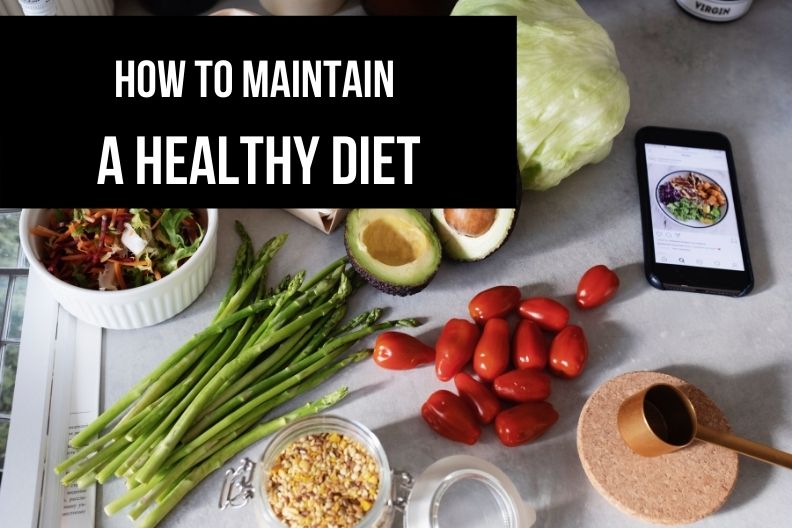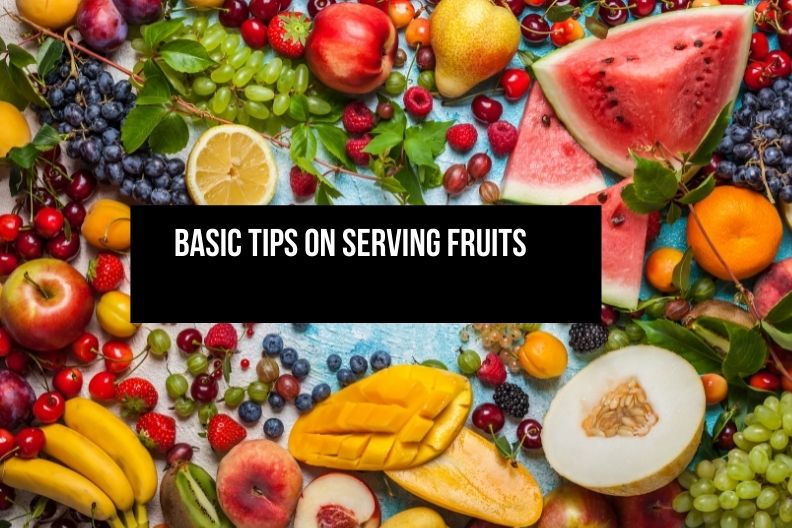This post contains affiliate links. This means I will make a commission at no extra cost to you should you click through and make a purchase. Read the full disclosure here.
A healthy diet is essential for good health and nutrition. This can be attained by maintaining a balanced diet and keeping into consideration to meet all the essential nutrients required by the body.
Below are 5 ways to Maintain a Healthy Diet
Table of Contents
Eat a Variety of Foods
Many foods are good sources of several nutrients. However, no single food can supply all nutrients in the amounts you need. Choose a variety of foods each day. Any food that supplies calories and nutrients can be part of a nutritious diet. Such a diet includes daily servings of grain products, vegetables, fruits, milk and milk products, and meat and meat alternatives.
Balance the Food You Eat With Physical Activity
If you are overweight or underweight, you have an incresead chnace of developing health problems. Being overweight is linked with high blood pressure, heart diseaes, stroke, some forms of diabetes, and certain cancers.
People who are underweight may regularly feel cold and tired. They are more likely to have trouble recovering from surgery and some diseases.
Healthy weight has different meanings for different people. If you are not at a healthy weight, make an effort to form better eating and exercise habits. Careful food choices and physical activity are both essential parts of a weight management plan.
Choose a Diet with Plenty of Grain Products, Vegetables, and Fruits
To meet this guideline, your diet should include bread, cereals, rice, pasta, and a variety of vegetables and fruits. Most of these foods are high in vitamins and minerals.
Choose a Diet Low in Fat, Saturated Fat, and Cholesterol
Diets high in fat, saturated fat, and cholesterol are linked to heart disease, stroke, and certain types of cancer. They also increase the risk of obesity. Because of these concerns, no more than 30 percent of your total day’s calories should come from fat. No more than 10 percent of your total calories should come from saturated fats. To achieve this, follow these guidelines:
- Try eating less fat from animal sources.
- Trim fat from meats, remove the skin from chicken and choose non-meat protein sources, such as dry beans and peas.
- Select low-fat and fat-free dairy products.
- Limit your intake of high-fat snacks and desserts, dressings, spreads, and cooking oils.
Choose a Diet Moderate in Sugars
Sugar includes white sugar, brown sugar, honey, molasses, and table syrups. Foods high in sugars include jams and jellies, candies, and desserts. These foods supply calories but not many nutrients. Excess calories contribute to overweight. Sugars also contribute to tooth decay. Limit your intake of foods high in sugar and brush your teeth after eating.
If you drink alcoholic beverages, do so in moderation. Alcohol merely supplies calories to the diet. Drinking alcohol can be harmful to health. Alcohol can be a contributing factor in accidents, and drinking alcohol can lead to addiction. Excessive alcohol consumption may cause cirrhosis of the liver and inflammation of the pancreas. Damage to the heart and brain and an increased risk for many cancers are also associated with high alcohol consumption.
For teens and children, drinking alcoholic beverages is illegal as well as unhealthful. Children, teens, and pregnant women should completely avoid consuming alcohol. Nursing mothers and anyone taking medication must also avoid alcohol.
Using Variety, moderation, and balance are three words that sum up the spirit of eating right. Variety means you should include many different types of foods in your diet. Moderation means you should avoid eating too much of any one type of food. Balance involves selecting some foods that are lower in sodium, sugars, fats, and calories. This will help offset food choices that are higher in those components. You also need to choose foods in amounts that are equal to your calorie needs.
Try to look at eating behaviors from a lifestyle perspective. One day’s meals are not nearly as important as the total picture. Work toward improving your eating patterns over the long haul to build a healthful lifestyle





